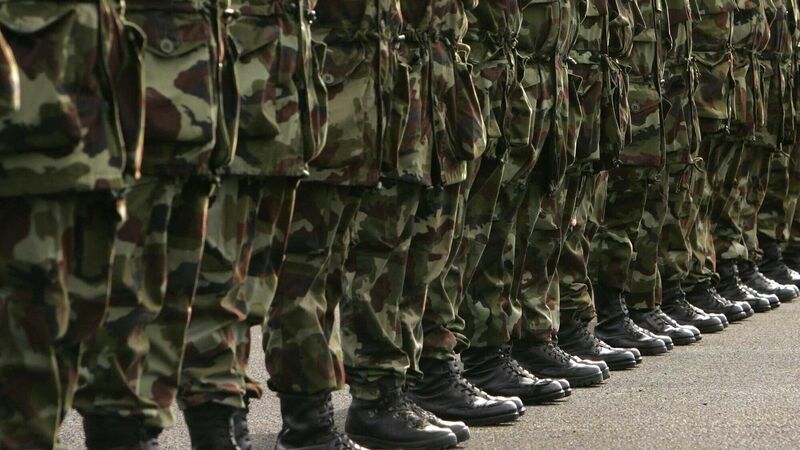Military reserves warn funding cuts risk collapse of force as Cork TDs press for answers

Soldiers line up at the launch of the new Reserve Defence Force (RDF). File picture
The head of the association representing Ireland’s military reserves has said it is not possible to grow, train, utilise, and retain a modern back-up force “while expecting its members to perform a significant portion of their service for free.”
Neil Richardson, general secretary of the Reserve Defence Forces Representative Association (RDFRA), made the comment at a meeting of the Joint Oireachtas Committee on Defence and National Security.
















